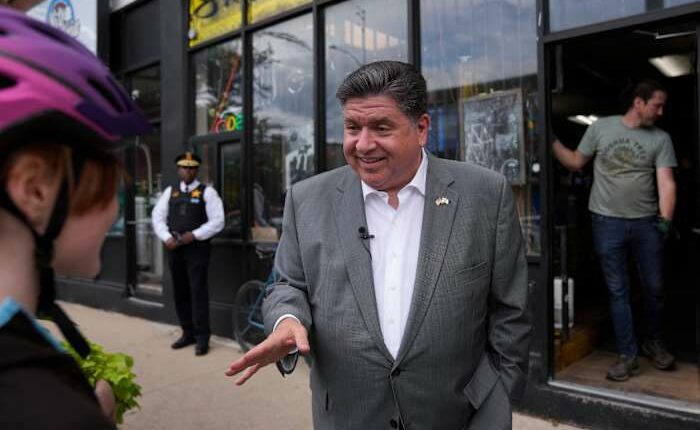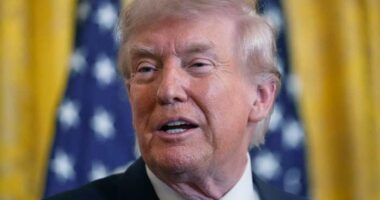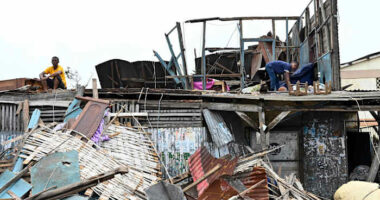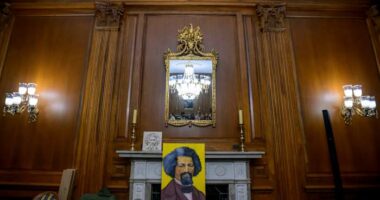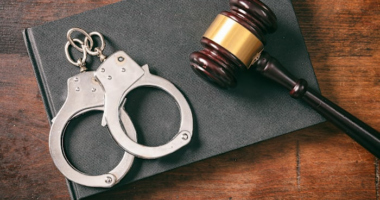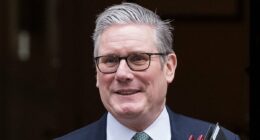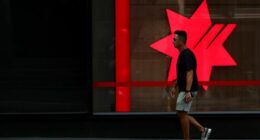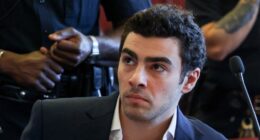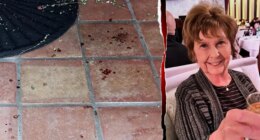Share this @internewscast.com

CHICAGO – Governor JB Pritzker of Illinois is reinforcing his stance against President Donald Trump’s suggestion of military intervention in Chicago to combat crime. Pritzker highlights areas where violent crime has dropped and insists that involving the National Guard could worsen issues.
“We want to illustrate that there is no crisis in Chicago,” the Democrat expressed to The Associated Press on a Wednesday tour of a South Side area that has seen revitalization, featuring new businesses like an art studio and a wine bar.
“We’ve been fighting crime. We’ve been trying to prevent crime and it’s been working.”
There has been a war of words between Trump and Pritzker, who is viewed as a potential presidential candidate for 2028, regarding a proposal that might deploy the National Guard to cities like Chicago and Baltimore, similar to actions taken in Los Angeles and Washington, D.C.
While Pritzker and city officials are prepared to sue, he has also organized high-profile press events, engaged on social media with sarcasm, and orchestrated neighborhood visits, ensuring Chicago remains in the public eye.
This exchange happens as polls reveal some backing for Trump’s tough stance on crime in Democrat-led cities, and Pritzker, a successful businessman pursuing a third term, is working to raise his national presence.
Eyes now on Chicago
Trump has consistently criticized Chicago, comparing it to a battlefield and recently calling it a “hellhole.” The city’s long-standing sanctuary status has vexed his administration, leading to legal battles. Earlier in the year, Trump launched an immigration crackdown in Chicago, publicized with live-streamed arrests by TV host “Dr. Phil” McGraw.
“Panic stricken Governor Pritzker says that crime is under control, when in fact it is just the opposite. He is an incompetent Governor who should call me for HELP,” Trump posted Tuesday on his Truth Social media platform.
The possibility of military patrols in Chicago was swiftly condemned by Mayor Brandon Johnson, religious leaders and activist groups who argue that crime is down. While no details have emerged of how the operation might play out, Chicagoans remained on edge with questions about where troops might be stationed and whether they’d be armed.
“What he’s trying to do is try to inflame something that will cause a problem that he can then point at,” Pritzker told AP.
Chicago’s violent crime has dropped notably in recent years, but it remains a persistent localized problem. Some neighborhoods with the highest homicide rates, including on the city’s south and west sides, have 68 times more homicides than those with the lowest rates, according to the University of Chicago Crime Lab.
The city reported 573 homicides in 2024, the most of any U.S. city that year, according to the Rochester Institute of Technology. At the same time, violent crime dropped significantly in the first half of the year, representing the steepest decline in over a decade, according to city data. In the first six months of 2025, total violent crime dropped by over 22% when compared with the same time period last year.
“He talks a good game,” Pritzker said of Trump. “He wants to reduce crime, he says, but then he does things that are frankly defunding police and defunding our efforts to fight crime.”
The vast majority of Americans, 81%, see crime as a “major problem” in large cities, according to a new AP-NORC poll released Wednesday. Trump has seized on those concerns as he has deployed the National Guard to the District of Columbia and threatened to expand that model elsewhere. The approach appears to be helping Trump, at least for the moment, as the poll showed his overall approval rating increased slightly, from 40% in July to 45% now.
About half of U.S. adults, 53%, say they approve of Trump’s handling of crime, the poll finds. But there is less public support for federal takeovers of local police departments, the poll also found. That suggests opinions could shift, depending on how aggressively Trump pursues his threats.
“Certainly there’s a lot more going on in the world than for him to send troops into Chicago,” Pritzker said. “He ought to be focused on some of the bigger problems.”
Pritzker’s political theater
Since details of the possible plan emerged last week, Pritzker has invited reporters aboard a Chicago River water taxi for a picturesque ride, convened about 100 of the city’s most powerful leaders for a solidarity news conference and made digs at Trump in a narrated video of his morning walk along Lake Michigan.
By Wednesday, he opted for a less touristy locale away from downtown, greeting a crowd at a soul food restaurant in the historically Black Bronzeville neighborhood on the city’s South Side, where revitalization efforts have been ongoing. While Cleo’s is usually closed on Wednesdays, the restaurant’s owner opened for Pritzker and packed the small space with family and staff, all supporters of the two-term governor.
Associated Press reporters were invited to observe as he greeted the crowd and walked along a business corridor of Black-owned businesses. A cameraman from Pritzker’s campaign team was also in tow.
Pritzker, an heir to the Hyatt Hotel fortune, was first elected governor in 2018, his first time in public office. He’s sidestepped questions about his plans for 2028, saying he’s focused on the state.
Pritzker dismissed the notion that he was the one keeping Chicago in the spotlight.
“I’m not the one that’s targeting Chicago,” he said. “I’m not the one that’s just speaking out to get attention for Chicago.”
Copyright 2025 The Associated Press. All rights reserved. This material may not be published, broadcast, rewritten or redistributed without permission.
